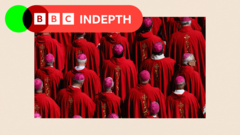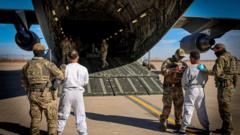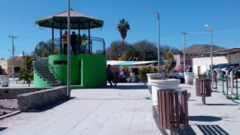The conclave set for May 7 at the Vatican's Santa Marta guesthouse sees cardinals navigating differing perspectives shaped by the past twelve years under Pope Francis. Although about 80% of the voting cardinals were appointed by him, his significant shift toward emphasizing issues like social justice and inclusivity has sparked internal disagreements.
**Divisions and Directions: The Vatican on the Brink of a New Papacy**

**Divisions and Directions: The Vatican on the Brink of a New Papacy**
As cardinals prepare to elect a new pope, emerging divides reflect both the legacy of Pope Francis and the diverse needs of the global Church.
In the lead-up to this pivotal moment, the cardinals have engaged in daily meetings to discuss their visions for the Church. This year's conclave marks historic representation from countries such as South Sudan and Papua New Guinea, highlighting the myriad of challenges faced across the globe. European concerns often center on dwindling congregations, whereas those from Africa or Asia may prioritize poverty and conflict resolution. The next pope will be tasked with balancing these diverse priorities and furthering Pope Francis's legacy without alienating skeptical factions within the Church.
Pope Francis expanded the Vatican's role as a moral leader on global issues, aiming to connect with marginalized communities and influencing everything from climate change to interfaith dialogue. His approach resonates not just with Catholics but also with a wider audience; thus, the upcoming election garners international attention.
However, tensions are palpable as traditionalists express concern over what they view as Francis's departures from established Church doctrine. The pre-conclave meetings have seen a mix of support and criticism, with many calling for clarity and unity.
Ultimately, as the cardinals convene in the Sistine Chapel, they face a moment of profound importance. The outcome could redefine the Church's global stance and ensure that the values championed by Pope Francis continue, or conversely, steer a return to more traditional approaches. In seeking guidance, they will be urged to let spirituality shape their decision in an increasingly complex world.
Pope Francis expanded the Vatican's role as a moral leader on global issues, aiming to connect with marginalized communities and influencing everything from climate change to interfaith dialogue. His approach resonates not just with Catholics but also with a wider audience; thus, the upcoming election garners international attention.
However, tensions are palpable as traditionalists express concern over what they view as Francis's departures from established Church doctrine. The pre-conclave meetings have seen a mix of support and criticism, with many calling for clarity and unity.
Ultimately, as the cardinals convene in the Sistine Chapel, they face a moment of profound importance. The outcome could redefine the Church's global stance and ensure that the values championed by Pope Francis continue, or conversely, steer a return to more traditional approaches. In seeking guidance, they will be urged to let spirituality shape their decision in an increasingly complex world.




















